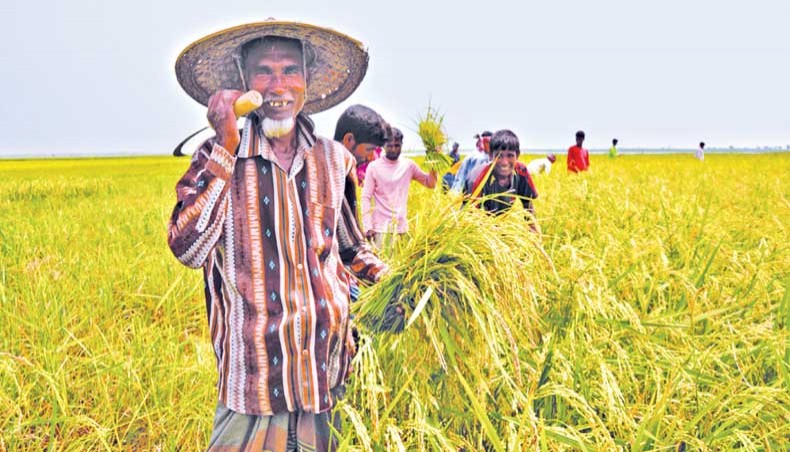Right to food in Bangladesh
FOOD is a substance that is consumed to provide nutritional support for body. It is a basic need of every human being and should be made available to all irrespective of caste, creed, religion, race and nationality. In a recent study on perceptions regarding access to justice respondents identified food security as one of their top three concerns. The same survey also identified lack of justice as a major concern. In this context, making available means making remedies accessible to everybody regarding food security. Safe and nutritious food of good quality prepared under hygienic conditions is essential for the health of all consumers. Access to safe and nutritious food along with food security is of utmost importance in our attempt to reach the Sustainable Development Goals to reduce the prevalence of hunger and undernourishment in Bangladesh.
Food security exists when all people have access to sufficient, safe and nutritious food to maintain a healthy and active life. The one’s right to food is mentioned in international treaties and declarations. Bangladesh has obligations under international treaties.
Bangladesh has many laws relating to food safety in the Penal Code 1860, the Pure Food Ordinance 1959 (Repealed), the Pesticides Ordinance 1971, the Bangladesh Standards and Testing Institution Ordinance 1985, the Fertiliser Management Act 2006, the Consumer Rights Protection Act 2009, the Mobile Courts Act 2009, Safe Food Act 2013 and the Formalin Control Act 2015. According to the Penal Code 1860, preparation of adulterated food and the sale of this is a punishable offence.
The pure food ordinance 1959 provides for a better control of the manufacturing and sale of food for human consumption, establishes the National Food Safety Advisory Council, provides for the establishment of a pure food court, and prohibits the use of adulterated and poisonous chemicals to colour any food or drinks.
The Bangladesh Standard and Testing Institution Ordinance 1985 establishes the Bangladesh Standards and Testing Institution for standardisation, testing, quality control and marking of foods. The specific functions of BSTI are: (a) establishing specific standards of quality, (b) promoting standardisation and quality control to secure compliance with standards, (c) to certify the quality of foods, (d) empowering the government to restrict the sale or import of certain goods that do not meet Bangladesh standards and (e) appointing inspectors for checking the quality and standard of articles and to take samples of any article to test it against the BSTI’s standards.
Knowingly selling or offering to sell any adulterated product or medicine and deceiving people by way of false/untrue advertisements are offences against consumers, according to the Consumer Rights Protection Act 2009. This act establishes a National Consumer Rights Protection Council, a National Consumer Rights Protection Directorate and a Consumer Rights Association.
The Mobile Courts Act 2009 empowers executive magistrates to function as mobile courts to hear and try certain offences on the spot; the court has the jurisdiction to try offences under the laws and regulations mentioned in the schedule of the act. The court retains the power to seize and dispose of perishable, dangerous or hazardous substances if necessary.
Although many laws address the food safety issue, most of the legislation related to various aspects of food are old, and do not sufficiently address the challenges of the right to food. Proper enforcement of the existing laws is lacking. Individuals are not aware of their rights and available remedies and redress. There is also a scope for a lot of researches into certain areas by reviewing the adequacy of relevant laws to make mobile courts and Pure Food Courts more effective. This would enable one to find the remedies that are available when food rights are violated and to access the Social Safety Net, urban coverage of SSN programmes in urban areas and functions under different related laws.
Furthermore, food safety risk assessors and risk managers need to work together so that they can identify food safety hazards and determine the optimal way to minimise associated public health risks while taking legitimate factors, such as, trade impacts, costs of measures etc. into account. This requires Bangladesh to build capacities and skills to introduce and apply the risk analysis approach to the food safety decision-making process.
News Courtesy: www.newagebd.net











